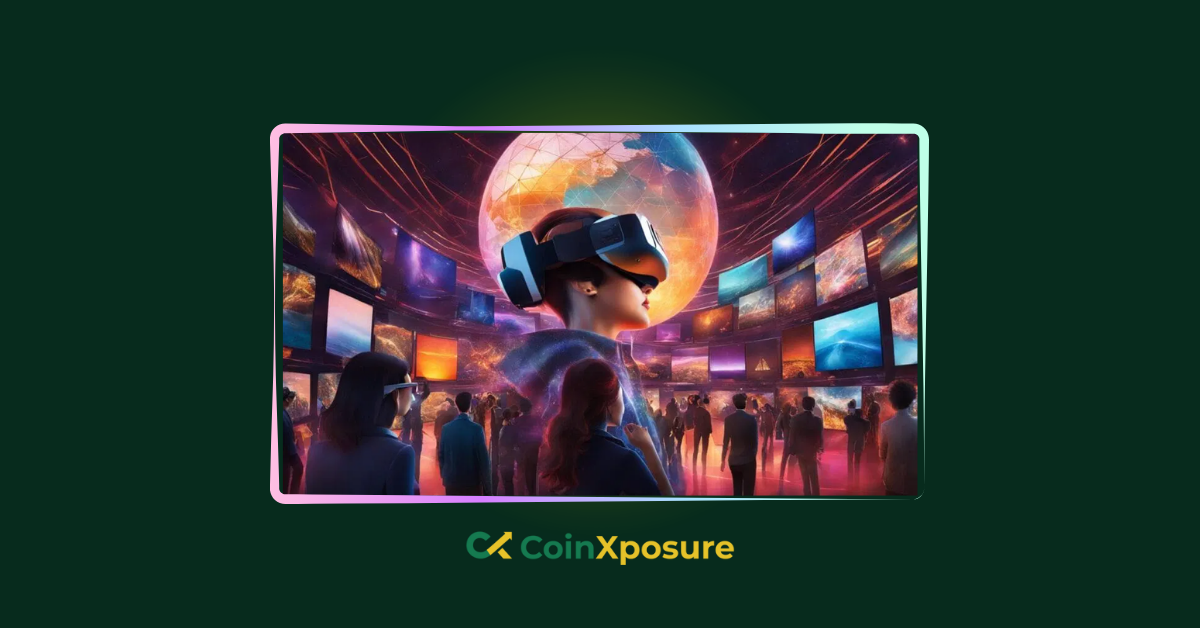
Virtual Gatherings – Exploring Metaverse Events and Their Impact
As technology continues to advance, virtual gatherings have evolved beyond simple video calls into immersive experiences within the metaverse.
The concept of metaverse events is rapidly gaining traction, offering a new dimension to social, business, and cultural interactions.
This article aims to explore the emergence of metaverse events, their various types, and their profound impact on society, economy, environment, and psychology.
By delving into these aspects, we can understand the potential of metaverse events and their implications for the future of virtual gatherings.
Understanding Metaverse Events
Metaverse events represent a significant shift in the way we engage with digital environments. The metaverse, a collective virtual space, is where these events take place, offering immersive experiences that go beyond traditional online gatherings.
Unlike conventional virtual meetings, metaverse events integrate elements of virtual reality (VR), augmented reality (AR), and social interaction, creating dynamic and interactive environments.
These events blur the lines between the physical and digital worlds, providing participants with a sense of presence and immersion previously unseen in online gatherings.
By embracing metaverse events, individuals and organizations can explore new avenues for collaboration, innovation, and engagement in the digital realm.
Types of Metaverse Events
Metaverse events encompass a diverse range of experiences, catering to various interests and purposes. These events leverage virtual reality (VR), augmented reality (AR), and other immersive technologies to create interactive environments. Here are some key types:
Social Gatherings
These events focus on fostering social connections and interactions within the metaverse. Examples include virtual parties, gatherings, meetups, and social clubs. Participants can engage in activities such as chatting, gaming, exploring virtual environments, and attending virtual concerts or events.
Business Conferences and Trade Shows
Metaverse events in the business realm aim to facilitate networking, knowledge sharing, and collaboration among professionals. They provide platforms for hosting conferences, seminars, workshops, and trade shows in virtual settings.
Features may include virtual booths, product demonstrations, keynote speeches, panel discussions, and networking lounges.
Cultural and Entertainment Events
These events cater to artistic, cultural, and entertainment experiences within the metaverse. Examples include virtual art exhibitions, film screenings, theater performances, music festivals, and gaming conventions.
Participants can immerse themselves in creative content, interact with artists, explore virtual art galleries, and attend live performances or shows.
Each type of metaverse event offers unique opportunities for engagement, interaction, and exploration, catering to diverse interests and objectives within the digital realm.
The Impact of Metaverse Events
Metaverse events have a profound impact across various aspects of society, economy, environment, and psychology, reshaping the way we interact and engage within virtual environments. Here’s a brief overview of their impact:
Social Impact
Community Building: Metaverse events foster connections and relationships among individuals from diverse backgrounds and locations.
Inclusivity and Accessibility: Virtual gatherings in the metaverse provide opportunities for participation regardless of physical location or mobility constraints.
Economic Impact
Cost-effectiveness: Hosting events in the metaverse can significantly reduce expenses associated with venue rentals, travel, and accommodations.
Revenue Generation: Metaverse events offer new avenues for monetization through ticket sales, sponsorships, virtual merchandise, and digital advertising.
Environmental Impact
Reduction of Carbon Footprint: By eliminating the need for physical travel, metaverse events contribute to reducing greenhouse gas emissions and environmental impact.
Sustainable Alternatives: Virtual gatherings promote sustainable practices by minimizing resource consumption and waste production associated with traditional events.
Psychological Impact
Immersive Experience: Participants in metaverse events experience a heightened sense of presence and immersion, enhancing their engagement and enjoyment.
Mental Health Considerations: The accessibility and inclusivity of virtual gatherings in the metaverse may positively impact mental well-being by reducing social barriers and promoting social interaction.
Metaverse events have the potential to revolutionize how we connect, collaborate, and experience virtual gatherings, with far-reaching implications for individuals, organizations, and society as a whole.
Challenges Facing Metaverse Events
Despite their potential, metaverse events also face several challenges that need to be addressed for widespread adoption and success. Here are some key challenges:
- Technological Infrastructure
- Security and Privacy Concerns
- Digital Divide
- Regulatory and Legal Issues
Technological Infrastructure
Access to High-Speed Internet: Reliable internet connectivity is essential for seamless participation in metaverse events, posing a challenge in areas with limited infrastructure.
Hardware Requirements: VR and AR technologies require specialized hardware, which may be cost-prohibitive for some participants.
Security and Privacy Concerns
Data Protection: Safeguarding personal and sensitive information within virtual environments is crucial to prevent data breaches and privacy violations.
Cybersecurity Threats: Metaverse events are susceptible to cyberattacks, including phishing, malware, and identity theft, necessitating robust security measures.
Digital Divide
Accessibility Barriers: Socioeconomic disparities may limit access to metaverse events for individuals with lower incomes or from underserved communities.
Technological Literacy: Lack of familiarity with virtual technologies may hinder participation among older adults and individuals with limited digital skills.
Regulatory and Legal Issues
Intellectual Property Rights: Copyright infringement and intellectual property disputes may arise concerning virtual content and creations within the metaverse.
Jurisdictional Challenges: Determining legal jurisdiction and regulatory compliance for metaverse events hosted across international borders can be complex.
Addressing these challenges requires collaboration among stakeholders, including technology developers, policymakers, and community advocates, to ensure the inclusive and responsible growth of metaverse events.
Conclusion
Metaverse events represent a groundbreaking evolution in the realm of virtual gatherings, offering immersive and interactive experiences that transcend traditional online interactions.
Despite their potential to revolutionize social, economic, and cultural engagement, these events also face challenges related to technological infrastructure, security, accessibility, and regulatory compliance.
However, by addressing these challenges through collaborative efforts and innovative solutions, we can unlock the full potential of metaverse events and harness their benefits for individuals, organizations, and society as a whole.
As we continue to explore and embrace the possibilities of the metaverse, it is essential to prioritize inclusivity, sustainability, and ethical considerations to ensure that these virtual environments are accessible, safe, and equitable for all.
In doing so, we can usher in a new era of virtual gatherings that empower creativity, foster connections, and inspire meaningful experiences across the digital landscape. The future of metaverse events holds promise as we navigate the opportunities and challenges of this dynamic and transformative space.





